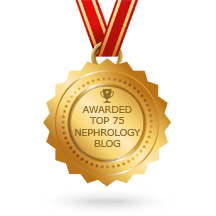During this second week of National Kidney Month, we have another reader directed blog. She had stumbled across The Long Awaited Sulfa Blog and had some questions about it and NAC. Hold on, I’ll get to NAC in a moment. Let’s start with sulfite, which I had always thought was not the same as sulfa. Did our reader mistype? Her verbatim question was, “Have you heard anything about NAC and CKD with sulfite sensitivity?”
According to MedicineNet at https://www.medicinenet.com/script/main/art.asp?articlekey=27721:
“Sulfite sensitivity: Adverse reactions of an allergic nature to sulfites. Sulfites occur in fermentation and also occur naturally in a number of foods and beverages including wine. Sulfites are used for their preservative properties. Sulfite sensitivity occurs most often in asthmatic adults — predominantly women. It is uncommon in preschool children. Adverse reactions to sulfites in nonasthmatics are rare. Sulfite sensitivity reactions range from mild to severe and may include skin, respiratory, or gastrointestinal signs and symptoms. Bronchoconstriction with wheezing is the most common sensitivity response in asthmatics.”
While I do know this reader is a woman, I do not know if she is asthmatic or a wine drinker.
Let’s move along to NAC. Healthline at https://www.healthline.com/nutrition/nac-benefits#section12 (Yes, that is the same Healthline that chose SlowItDownCKD as best kidney blog two years in a row.) tells us, it is N-Acetyl Cysteine and explains what this supplement is and what it can do for you. I added asterisks next to definitions you may need.
“Cysteine is a semi-essential amino acid.
It’s considered semi-essential because your body can produce it from other amino acids, namely methionine and serine. It becomes essential only when the dietary intake of methionine and serine is low.
Cysteine is found in most high-protein foods, such as chicken, turkey, yogurt, cheese, eggs, sunflower seeds and legumes.
N-acetyl cysteine (NAC) is a supplement form of cysteine.
Consuming adequate cysteine and NAC is important for a variety of health reasons — including replenishing the most powerful antioxidant in your body, glutathione. These amino acids also help with chronic respiratory conditions, fertility and brain health.
Here are the top 9 health benefits of NAC.
- Essential for Making the Powerful Antioxidant Glutathione
NAC is valued primarily for its role in antioxidant production.
Along with two other amino acids — glutamine and glycine — NAC is needed to make and replenish glutathione.
 *Glutathione is one of the body’s most important antioxidants, which helps neutralize free radicals that can damage cells and tissues in your body.
*Glutathione is one of the body’s most important antioxidants, which helps neutralize free radicals that can damage cells and tissues in your body.
It’s essential for immune health and fighting cellular damage. Some researchers believe it may even contribute to longevity ….
Its antioxidant properties are also important for combatting numerous other ailments caused by oxidative stress, such as heart disease, infertility and some psychiatric conditions….
- Helps With Detoxification to Prevent or Diminish Kidney and Liver Damage
NAC plays an important role in your body’s detoxification process.
It can help prevent side effects of drugs and environmental toxins….
In fact, doctors regularly give intravenous (IV) NAC to people with an acetaminophen overdose to prevent or reduce kidney and liver damage ….
NAC also has applications for other liver diseases due to its antioxidant and anti-inflammatory benefits ….
- May Improve Psychiatric Disorders and Addictive Behavior
*NAC helps regulate levels of glutamate — the most important neurotransmitter in your brain….
While glutamate is required for normal brain action, excess glutamate paired with glutathione depletion can cause brain damage.
This may contribute to mental health conditions, such as bipolar disorder, schizophrenia, obsessive-compulsive disorder (OCD) and addictive behavior….
For people with bipolar disease and depression, NAC may help decrease symptoms and improve your overall ability to function. What’s more, research suggests that it may play a role in treating moderate to severe OCD ….
NAC supplements can also help decrease withdrawal symptoms and prevent relapse in cocaine addicts ….
- Helps Relieve Symptoms of Respiratory Conditions
NAC can relieve symptoms of respiratory conditions by acting as an antioxidant and expectorant, loosening mucus in your air passageways.
As an antioxidant, NAC helps replenish glutathione levels in your lungs and reduces inflammation in your bronchial tubes and lung tissue.
People with chronic obstructive pulmonary disease (COPD) experience long-term oxidative damage and inflammation of lung tissue, which causes airways to constrict — leading to shortness of breath and coughing.
NAC supplements have been used to improve COPD symptoms, exacerbations and lung decline ….
Those with chronic bronchitis can also benefit from NAC.
Bronchitis occurs when the mucous membranes in your lungs’ bronchial passageways become inflamed, swell and shut off airways to your lungs….
By thinning mucus in your bronchial tubes and boosting glutathione levels, NAC may help decrease the severity and frequency of wheezing, coughing and respiratory attacks ….
In addition to relieving COPD and bronchitis, NAC may improve other lung and respiratory tract conditions like cystic fibrosis, asthma and pulmonary fibrosis, as well as symptoms of nasal and sinus congestion due to allergies or infections ….
- Boosts Brain Health by Regulating Glutamate and Replenishing Glutathione
NAC’s ability to replenish glutathione and regulate brain glutamate levels can boost brain health.
*The brain neurotransmitter glutamate is involved in a broad range of learning, behavior and memory actions, while the antioxidant glutathione helps reduce oxidative damage to brain cells associated with aging….
Because NAC helps regulate glutamate levels and replenish glutathione, it may benefit those with brain and memory ailments ….
NAC supplements appear to improve both dopamine function and disease symptoms such as tremors ….
- May Improve Fertility in Both Men and Women
 Approximately 15% of all couples trying to conceive are affected by infertility. In almost half of these cases, male infertility is the main contributing factor ….
Approximately 15% of all couples trying to conceive are affected by infertility. In almost half of these cases, male infertility is the main contributing factor ….
Many male infertility issues increase when antioxidant levels are insufficient to combat free radical formation in your reproductive system. The oxidative stress can cause cell death and reduced fertility ….
In some cases, NAC has been shown to improve male fertility….
In addition, NAC may improve fertility in women with polycystic ovary syndrome (PCOS) by inducing or augmenting the ovulation cycle ….
- May Stabilize Blood Sugar By Decreasing Inflammation in Fat Cells
High blood sugar and obesity contribute to inflammation in fat tissue.
This can lead to damage or destruction of insulin receptors and put you at a higher risk of type 2 diabetes ….
- May Reduce Heart Disease Risk by Preventing Oxidative Damage
Oxidative damage to heart tissue often leads to heart disease, causing strokes, heart attacks and other serious conditions.
NAC may reduce heart disease risk by reducing oxidative damage to tissues in your heart ….
It has also been shown to increase nitric oxide production, which helps veins dilate and improves blood flow. This expedites blood transit back to your heart and can lower your risk of heart attacks ….
- Ability to Boost Glutathione Levels May Improve Immune Function
NAC and glutathione also boost immune health.
Research on certain diseases associated with NAC and glutathione deficiency suggests that immune function might be improved — and potentially restored — by supplementing with NAC….
High levels of NAC in your body may also suppress HIV-1 reproduction.
For your body to make the amino acid cysteine, you need adequate amounts of folate, vitamin B6 and vitamin B12. These nutrients can be found in beans, lentils, spinach, bananas, salmon and tuna.
While most protein-rich foods, such as chicken, turkey, yogurt, cheese, eggs, sunflower seeds and legumes, contain cysteine, some people choose to supplement with NAC to increase their cysteine intake.
NAC has low bioavailability as an oral supplement, meaning that it’s not well absorbed. The accepted daily supplement recommendation is 600–1,800 mg of NAC ….”

Okay, I don’t get it. Have I missed something about the connection between sulfite sensitivity and NAC? If you can find what I missed, please let us know.
Ah, if only I could have been more helpful.
Until next week,
Keep living your life!



Leave a comment